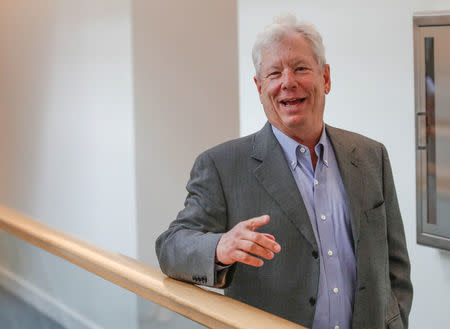How to heal a nation divided by Brexit

With news that Northern Ireland could remain in the EU’s single market and customs union to keep its open border with the Republic of Ireland the UK is on the verge of literally being a divided nation – half in and half out of the EU.
London and Scotland, who voted to stay in the EU, are now claiming they should have the same deal as Northern Ireland.
But if the UK is to make Brexit a success it surely has to come through it united, with differences set aside and where both sides understand the values and psychology driving them to their opposing points of view.
MORE: What Is Happening With Northern Ireland And Brexit?
MORE: DUP torpedoes Theresa May and Jean-Claude Juncker’s Northern Ireland agreement
Many articles on the behaviours behind Brexit have been written by Remain supporters, explaining why people who voted to leave chose the wrong answer. Why did the status quo not prevail? Because emotion won over facts, and intuition trumped reason, mainly due to the language used by Leave: take back control!
The assumption is that people who voted to remain weighed up the pros and cons of being in the EU and chose accordingly, much like a judge summing up evidence in a court case. They were rational even if everyone else was not. But as the behavioural economist and Nobel laureate Richard Thaler, said before the vote, “if you can find 100 voters in Britain that have made that calculation, I’d like to talk to them”.

The reality is that Brexit is complex and the calculations are beyond most of our cognitive abilities. There is a high degree of uncertainty and many interdependent variables, from the level of local support to Government capacity and European politics. Any small change now may lead to significant repercussions in the future. Just Google “Brexit forecasts” to view the range of possibilities and differences of opinion.
Sadly, what the vote did, and continues to do, is create division.
MORE: The Best Solutions To The Northern Ireland Brexit Border Debacle
People chose one of two options based on a range of social, economic and environmental factors, some of which they were aware of and some they were not. Everyone was undoubtedly subject to a number of unconscious biases, but whether these should be perceived as errors or qualities of an effective decision-maker is a major point of debate. If there was another vote tomorrow, some people would vote the other way.
The problem is people are now divided into two tribes: Leave and Remain. An intuitive decision was made, a case was built, and the case must now be proved. People are quick to dismiss new information or denigrate points of view that contradict their beliefs in how they voted. This is known as cognitive dissonance. Internal conflict is uncomfortable, so it’s easier for people to dismiss the conflict than update their beliefs.

A member of protocol adjusts the EU flag prior to a meeting between British Prime Minister Theresa May and European Commission President Jean-Claude Juncker at EU headquarters in Brussels on Dec. 4 2017 (AP Photo/Virginia Mayo)
To overcome the division, there is a need for tolerance, both within and between tribes. This means not criticising those who update their beliefs based on new information (the dreaded U-turn in politics), and not dismissing other points of view without full consideration. Fundamentally, people must accept that – in most cases – people from both sides were just as sincere in wanting the best for their community and society.
In The Righteous Mind, the American social psychologist Jonathan Haidt discusses human morality in relation to the political beliefs of liberals, conservatives and libertarians in the US. He proposes six foundations of morality: care/harm, fairness/cheating, loyalty/betrayal, authority/subversion, sanctity/degradation and liberty/oppression.
He explains that the reason why liberals think working-class voters who vote conservative are being tricked is because they do not understand conservative motivations. While liberals are primarily driven by compassion and fairness, conservatives have a broader set of “moral taste buds”. They share similar values to liberals, moderated by the principles of loyalty, authority and sanctity, which liberals struggle to embrace.
While the political landscape is different in the UK, and the Brexit vote crossed political lines, thinking about the values and psychology behind the way people voted might lead to greater tolerance across divides and avert the descent into tribalism. People may find they have more in common than expected, no matter how they voted. Finding this commonality is the key to a successful Brexit. It’s OK to change your mind.
Edward Gardiner is Behavioural Design Lead at Warwick Business School and is one of the authors of Design for Behaviour Change.

 Yahoo Finance
Yahoo Finance 
